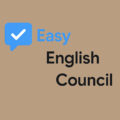IELTS Writing Task 2: Access to Clean Water – Band 6 vs Band 9 Response
In this post, we’ll compare two responses to the IELTS Writing Task 2 question:
“Access to clean water is a basic human right. Therefore, every home should have a water supply that is provided free of charge. To what extent do you agree or disagree?”
We will provide a Band 6 response, followed by a Band 9 response, and explain the key differences between them. This comparison will help you understand what it takes to move from an average to an excellent score in IELTS Writing Task 2.
Band 6 Answer
Response:
Access to clean water is a basic human right, but I do not believe that it should be provided free of charge to every household. There are both advantages and disadvantages to this idea, and in this essay, I will explain my opinion.
Firstly, while clean water is essential for health, providing free water to every home may lead to unsustainable usage. If people knew that water was free, they may be less careful with it. In many countries, water is already a scarce resource, and if people waste it, it could worsen the water shortage problem. For example, in countries like India, where water scarcity is a major issue, making water free could encourage people to use it recklessly, which would lead to even more severe shortages.
Secondly, the financial implications of providing free water to all households are significant. Governments would have to invest large sums of money to provide clean water to every home, especially considering the cost of infrastructure and maintenance. This could divert funds away from other important areas, such as healthcare and education. Governments with limited resources may find it difficult to afford this, especially in developing countries.
However, thirdly, I do agree that the government should ensure access to clean water for those who cannot afford it. Low-income families or rural communities should be given subsidized or free access to clean water. This approach would ensure that basic needs are met, without creating the financial burden of providing free water to everyone.
In conclusion, while I believe that clean water is a fundamental right, I think that providing free water to every home is not practical. A better solution would be to provide it for those who cannot afford it, while encouraging careful use and avoiding waste.
Why is this Band 6?
This response presents a clear and relevant opinion and addresses both sides of the argument. It is reasonably structured with logical development of ideas. However, there are some grammatical errors (e.g., “providing free water to every home may lead to unsustainable usage” – the link between cause and effect could be clearer), and some sentences are simplistic in structure. There is also a lack of sophisticated vocabulary, and the supporting examples are not as specificor detailed as in higher-band essays.
Band 9 Answer
Response:
Access to clean water is universally acknowledged as a basic human right, and I agree that everyone should have access to it. However, I do not think that it should be provided free of charge to every household. While this idea may seem appealing, there are various practical and economic challenges to consider.
Firstly, the financial burden of supplying free water to all households would be substantial. Governments, especially in developing countries, may not have the necessary funds to maintain this system. The cost of building infrastructure, treating water, and distributing it across large populations is enormous. If water were free, the money for these services would need to come from taxes, which could place a heavy burden on taxpayers, or it could divert funds from other essential services such as education or healthcare.
Secondly, providing free water may encourage wastefulness and a lack of conservation. If people know that water is free, they may take it for granted, using it irresponsibly. This could exacerbate water scarcity, particularly in regions already facing shortages. For example, in many water-scarce countries, making water free could lead to overconsumption and even more severe water crises.
Thirdly, while I do not support providing free water to everyone, I believe that governments should ensure that access to clean water is available to vulnerable populations. Those who are unable to afford it should receive subsidized or free access. A fair and effective solution could involve a tiered pricing system, where the first amount of water used is free or heavily subsidized, while excessive use is charged to encourage responsible consumption.
In conclusion, while clean water is indeed a basic human right, providing it free of charge to every home is not a feasible solution. Governments should instead focus on ensuring that vulnerable groups have access to clean water, while promoting careful and sustainable water usage.
Why is this Band 9?
This response is clear, well-organized, and cohesive. It provides a balanced argument, discussing both the pros and cons of providing free water and offering a practical solution. The ideas are fully developed, with specific examplesand a logical progression of thought. The vocabulary is sophisticated (“burden”, “overconsumption”, “tiered pricing system”), and the grammar is accurate and varied, with complex sentence structures. The response fully addresses the task and presents a well-rounded, supported opinion.
Final Thoughts
Writing a high-scoring IELTS essay involves more than just answering the question. You need to develop your ideas clearly, use accurate grammar and vocabulary, and structure your essay logically. By understanding the differences between Band 6 and Band 9, you can better identify the areas you need to improve to achieve a higher score in your IELTS exam.
